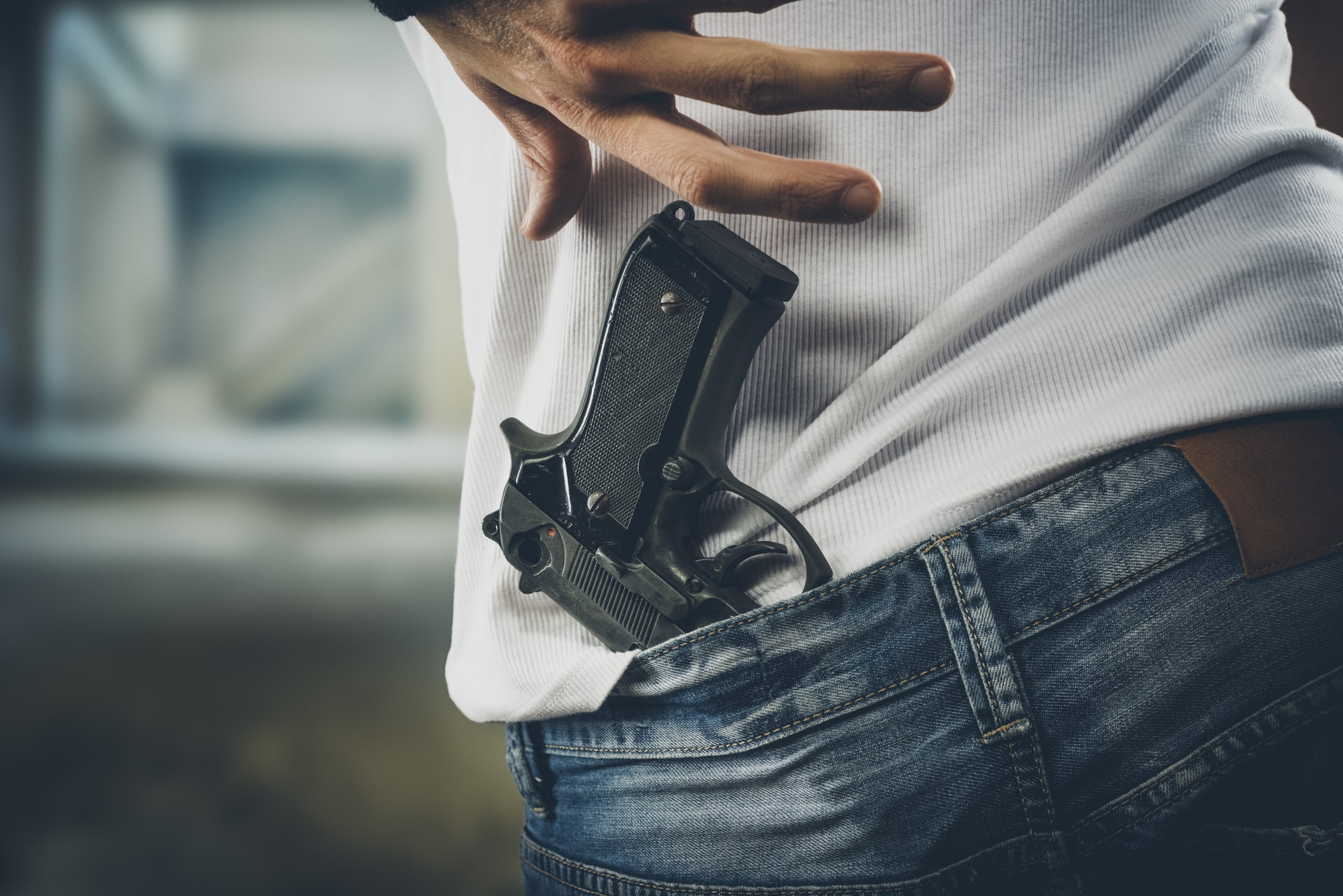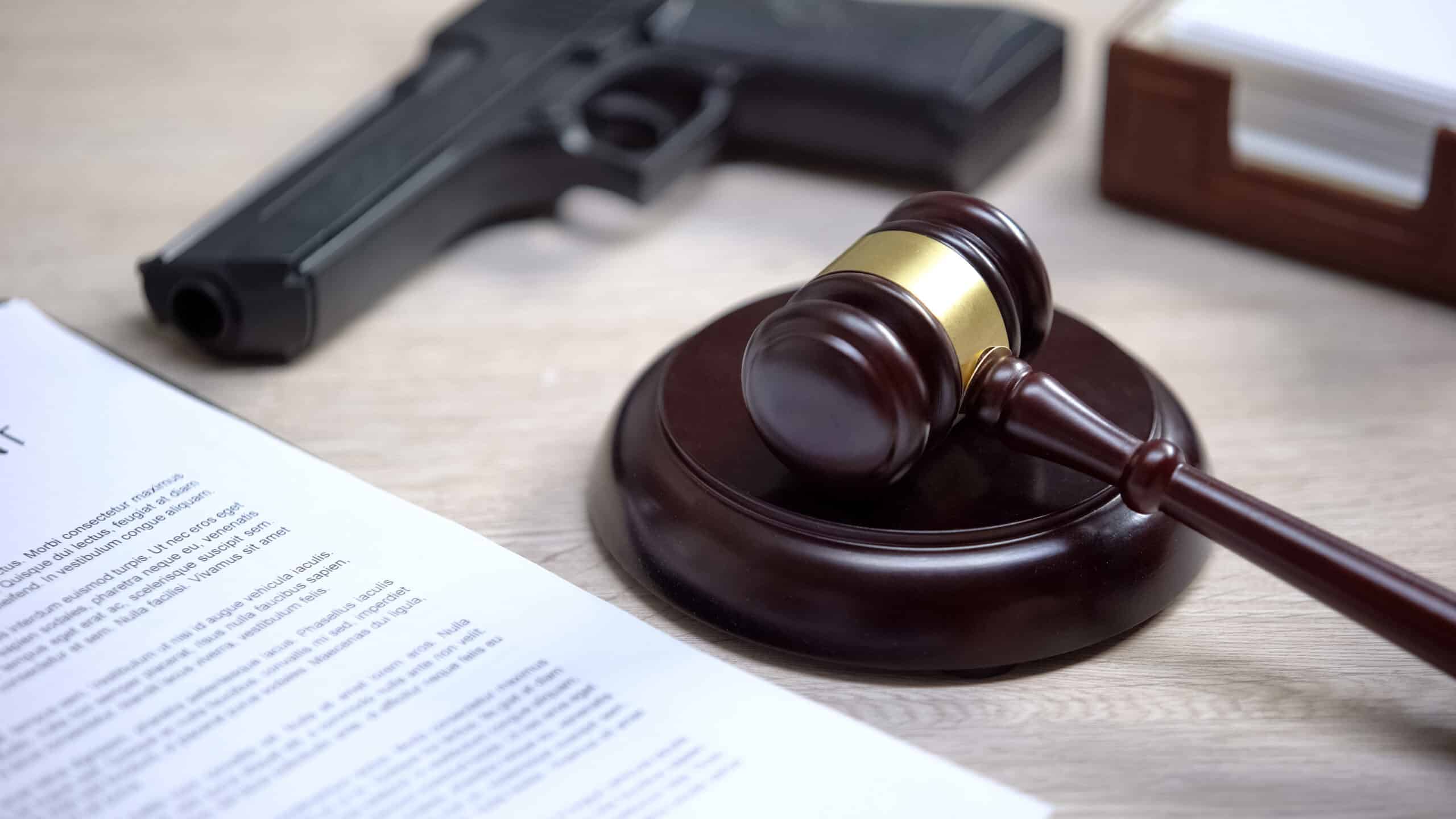As leading criminal defense lawyers in California, the Law Office of Cherish Om has helped countless individuals mount aggressive defenses to defend their names and protect their futures. Get in touch with us to schedule a consultation today.
Hopefully, you never have to hear, “You have been charged with assault with a deadly weapon.” But if you do find yourself in this situation, it’s important to understand this is an extremely serious charge. To beat it, you will need to partner with a top-tier criminal defense attorney.
When it comes to violent crimes, the consequences of conviction can be tremendous. Being convicted of assault with a deadly weapon can be a life-upending event that wreaks havoc on your future, family, career, finances, and even reputation. Violent crime convictions are difficult to get expunged from your criminal record, and even conviction of a lesser charge can haunt you for years to come.
That’s why you should only partner with an attorney who has experience in trying—and winning—cases like yours. Luckily, you don’t have to look too far.
If you’ve been charged with assault with a deadly weapon, the Law Office of Cherish Om is here to mount a robust legal defense on your behalf. As a reputable and seasoned defense lawyer in California, Attorney Om has the proven track record, resources, and expertise you need to overcome the charge of assault and move forward with your life.
This article will explain everything you need to know about assault with a deadly weapon, including the nature of the charge, the penalties for felony conviction, possible defense strategies, and more.
Were you accused of assault with a deadly weapon? If so, time is of the essence. The sooner you retain an experienced criminal defense lawyer, the sooner they can start gathering evidence and mounting a robust defense. Contact us online to get started.
Understanding Assault with a Deadly Weapon Charges in California
All violent crime charges are serious in California. However, being accused of assault with a deadly weapon is especially grave and deserves special consideration. It may seem straightforward, but many of our clients (and their families) are confused about the nature of these charges, including how California defines assault and deadly weapons.

What Is Assault With A Deadly Weapon?
California law defines assault as “the unlawful attempt, along with the present ability, to cause a violent injury to another person.” According to this definition, assault can mean anything from a fistfight to a physical or verbal attack. Assault with a deadly weapon as defined by California Penal Code § 245(a)(1) PC, on the other hand, necessarily involves the use of a potentially dangerous object and the intent to cause serious bodily injury.
Intent is a critical component in an assault with a deadly weapon charge. Without it, any resulting injuries may only constitute an accident. Similarly, the weapon used must qualify as a deadly weapon.

What Is a Deadly Weapon?
It is important to understand that a “deadly weapon” can be any object that is used with harmful intent—regardless of its intended purpose. A deadly object can be anything from a knife to a broken beer bottle to a baseball bat or tool. It could even be a motor vehicle, if the operator was driving it with the purpose to hit and injure someone.
There have even been assault cases in which canned goods were used to inflict bodily injury, illustrating that practically any object can be considered a deadly weapon under the right circumstances.
Body parts can also be considered a deadly weapon, depending on how they are used. It’s important to note, however, that guns are not included in this definition and fall under a different category of offense.
California Penal Code 245(a)(1) PC
Assault with a deadly weapon (AWD) can carry various degrees of punishment, depending on mitigating and aggravating circumstances, including the status of the alleged victim. Whereas causing a minor injury may only be charged as a misdemeanor assault and punished with a mere fine or probation, causing great bodily injury—especially to a vulnerable person or police officer—may result in a prison sentence.
Penalties for Assault with a Deadly Weapon
As previously explained, the penalties for assault with a deadly weapon vary according to the specifics of a case. Mitigating circumstances, such as acting in self-defense, are sometimes at play and can reduce both the impact and the sentencing associated with a crime. Some penalties include fines up to $10,000, one to four years in jail, or a combination of penalties. Plea bargains can assist in reductions of time served or fines.
Aggravating circumstances can add to the severity of penalties. Attacking certain individuals, such as elderly, disabled, and otherwise compromised people, as well as police officers or firefighters, is automatically considered aggravated assault with a deadly weapon if any weapons are used in the attack.
Sentencing for Assault with a Deadly Weapon
In most cases involving assault with a deadly weapon, judges have significant discretion during the sentencing phase. If the court decides to charge the defendant with a misdemeanor, conviction may only result in a fine or short county jail sentence. Conversely, if charged with a felony offense, a defendant may end up spending years in state prison.
This variability is exactly why it is essential to partner with an experienced criminal defense attorney. If you’ve been charged with assault with a deadly weapon, the Law Office of Cherish Om can investigate your case, review your legal options, and help you chart the best path forward.
Defenses to Assault with a Deadly Weapon Charges
Again, mitigating circumstances are those that make a crime more understandable; they add an important subjective element to a criminal case. Aggravating circumstances, on the other hand, are aspects of a crime that make it less understandable and imply a callous aspect to the incident.
Aggravating and mitigating circumstances don’t just affect the penalties for conviction; they also inform your defense strategy. Here are a few examples of potentially mitigating circumstances:
- You were defending yourself against a real or perceived threat.
- You were being threatened by multiple people at the same time.
- You tried to walk away before being forced to react.
- You didn’t receive your Miranda rights during your arrest, or your arresting officers acted unconstitutionally in some other way.
If you are able to demonstrate the significant mitigating circumstances to the court, you may be able to secure a reduced charge or more lenient sentencing. In contrast, the following aggravating circumstances may exacerbate your situation:
- You instigated the incident that resulted in your assault with a deadly weapon charge.
- You attacked a member of a protected class or a law enforcement officer.
- Your assault could be considered a hate crime.
- You were carrying the weapon with you prior to the incident occurring.
- (In cases of self-defense) You acted with more force than required.
- You have a criminal history or have been convicted of violent crimes in the past.
Assault with a Deadly Weapon FAQs
If you or a loved one has been charged with assault with a deadly weapon, you probably have many questions. The best way to get clarity is by speaking with an experienced criminal defense attorney. In the meantime, check out the answers to some of our most frequently asked questions.
• Can assault with a deadly weapon charges be dropped?
Yes—assault with a deadly weapon charges can be dropped. Some charges are simply unfounded, and others can be pled down by an attorney experienced in this type of legal defense.
• Is assault with a deadly weapon a felony?
This again depends on the circumstances. An officer on scene will use discretion, as will the court, when considering the charges and overall outcome. Some of the AWD charges can be pled down to a misdemeanor or reduced to simple assault or reckless endangerment; others can be dropped altogether.
• What weapons does the law consider as “deadly”?
There are many types of objects that can be considered deadly under the law, but whether or not they are classified as such largely depends on the outcome of the encounter. and much depends on the outcome of the encounter. A beer bottle used to inflict serious injury; a car used to hit a pedestrian; and even rocks when used to cause great bodily harm can be considered deadly.
• Can body parts be considered deadly weapons?
Yes, even body parts can be considered deadly weapons when used to inflict maximum damage. Like with other types of weapons or objects, the classification depends largely on the outcome of a particular incident.
The Law Office of Cherish Om: Trusted Criminal Defense Attorneys in California
If you have been charged with assault with a deadly weapon under PC 245(a)(1), you may be feeling confused, ashamed or hopeless. You may be concerned about serving jail time and unsure of how you’ll ever recover from conviction. Here’s the good news: No matter what criminal charges you’re facing, there is hope for your future.
When you’re ready to explore your legal options with a compassionate criminal defense lawyer, contact the Law Office of Cherish Om. And remember—the sooner you reach out, the sooner we can start building the rock-solid defense you deserve.

(831) 281-4964
om-law@outlook.com
1050 S. Green Valley Rd.
Watsonville, Ca 95076
